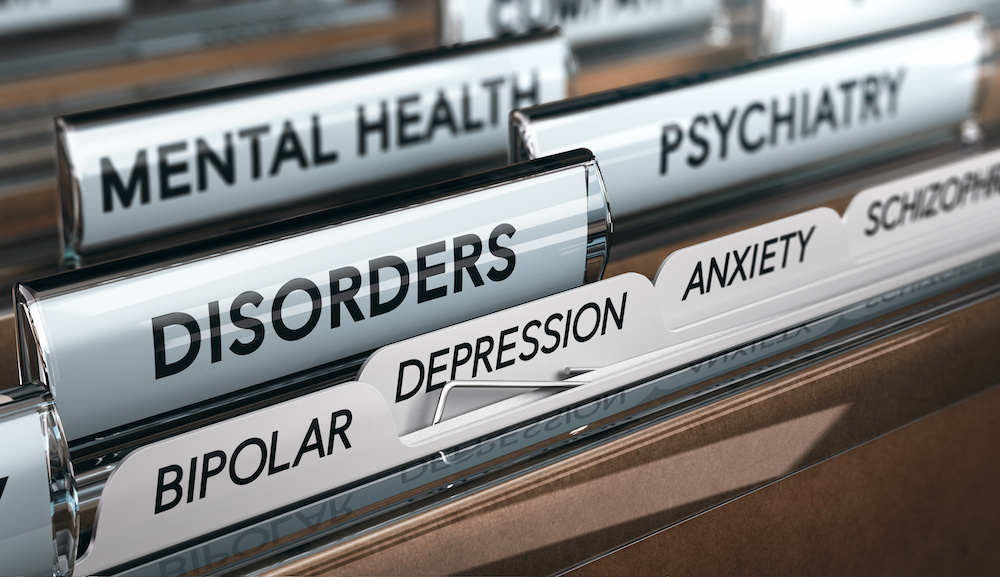

If you are struggling with addiction, it is not uncommon to have an underlying mental health disorder. This is also true vice-versa, as mental illness and addiction are closely related and known to both causes and react to one another. The symptoms of each are similar, with symptoms of addiction closely resembling the beginning signs of mental illness. When an individual is experiencing both, this is called a co-occurring disorder. Left untreated, a person struggling with both cannot fully recover and find healing; this is why it is crucial to understand co-occurring disorders and what treatment looks like for those struggling with them. This way, proper treatment can be sought to make recovery possible.
A co-occurring disorder is when a person struggles with addiction and a co-occurring mental illness. Unfortunately, mental illness and addiction often coincide and can make each other worse. For example, mental illness can cause an individual to be more likely to develop an addiction, and addiction increases the chances of developing a mental health disorder. This is why both must be treated simultaneously, or else the person risks relapsing after treatment.
There are a variety of mental illnesses that may co-occur with addiction. These include:
It can be challenging to spot an underlying mental illness when someone struggles with addiction because the symptoms are often similar. However, having a professional evaluate the individual or educating yourself on the signs and symptoms can help with catching it early to get someone the help they need.
Common symptoms of a dual diagnosis include:
Many individuals feel overwhelmed by the range of symptoms due to mental illness. To cope with these symptoms, many may turn to drugs and alcohol as an escape. However, this will only provide temporary relief and cause mental illness to worsen over time. This is where treatment for co-occurring disorders comes in and addresses both disorders to give the client the best chance at long-term recovery.
At treatment facilities around the country, such as Northstar Transitions, various evidence-based treatment modalities are used to help clients overcome their dual diagnosis; this helps to address the underlying factors of drug and alcohol addiction and symptoms of mental illness. At Northstar, you will find the following modalities used in treating co-occurring disorders:
Through the use of these treatments, clients can expect to learn more about addiction, its causes, the underlying causes for developing it, and how to heal. Healing takes time, but participation and the belief that you will get better go a long way. It is essential to take treatment seriously and heal your body and mind.
When an individual struggles with addiction and a co-occurring mental illness, they are often unaware of it. The effects of certain drugs mimic the symptoms of mental illness and therefore are blamed for the thoughts and behaviors. It is also true that without treating the underlying mental illness, the person is more likely to relapse after treatment; this is because their symptoms were never treated. Therefore they do not know how to cope when their mental illness is triggered.
For recovery to be successful, a client must undergo long-term treatment that addresses both addiction and mental illness. This way, the person can take the proper steps towards a life free from addiction. They will know how to cope with various symptoms, triggers, stressors, and more through different treatment modalities. By doing so, they are set up for a life of recovery, health, and happiness away from addiction.
Many people are unaware that mental illness and addiction can coincide, often causing symptoms to be overlooked by treatment providers. However, proper treatment must be given to address an individual’s addiction and mental illness to be set up for long-term recovery. Because the symptoms can be similar, it is essential to educate yourself on what they look like to spot someone in need. From there, treatment can e provided to help the person regain their footing and live a happy, healthy, and sober life. Treatment facilities such as Northstar Transitions provide spectacular care with evidence-based modalities tailored to your needs. Our team is expertly trained in treating co-occurring disorders and can get you started on your recovery journey. We believe in real, authentic recovery for the long term. The Northstar difference is clinical excellence, evidence-based therapeutic modalities, personalized treatment plans, and our location in the serene and majestic setting of Boulder, Colorado. Join us today and start your path at (303) 558-6400. You don’t have to suffer forever; reach out today! Northstar is here to help you.